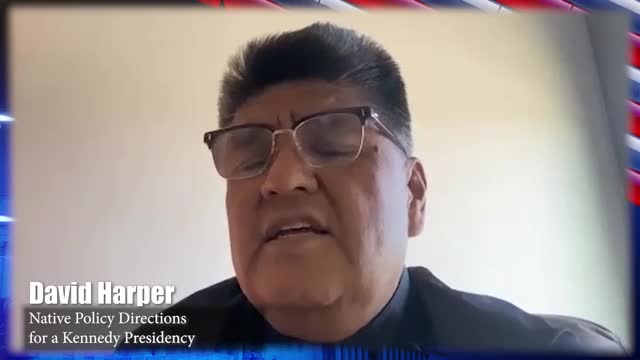Tribes push for energy independence amid utility conflicts
August 03, 2024 | Robert F. Kennedy Jr., Presidential Candidates 2024
This article was created by AI summarizing key points discussed. AI makes mistakes, so for full details and context, please refer to the video of the full meeting. Please report any errors so we can fix them. Report an error »

In a recent government meeting, discussions highlighted the complex relationship between tribal communities and utility companies regarding energy development. A representative emphasized that while many tribal members, particularly the elderly, seek reduced utility bills, the implications of transitioning to utility-scale solar and energy projects extend far beyond individual savings.
The representative pointed out that the introduction of such energy initiatives not only impacts local residents but also has broader repercussions for the region, state, and even the western United States. Tensions between tribes and utility companies were noted, stemming from a lack of communication about tribal energy development plans. Many tribes are eager to establish their own energy sources, yet they face significant challenges, including tariff taxes imposed by the Federal Energy Regulatory Commission (FERC).
Despite the presence of transmission lines on tribal land, tribes are still subjected to these tariffs while awaiting the development of their energy facilities. This situation has led to inconsistencies and frustrations among tribal leaders, who feel that their rights and needs are not being adequately addressed in the energy planning process. The meeting underscored the urgent need for improved dialogue and collaboration between tribal communities and utility providers to foster sustainable energy solutions that benefit all parties involved.
The representative pointed out that the introduction of such energy initiatives not only impacts local residents but also has broader repercussions for the region, state, and even the western United States. Tensions between tribes and utility companies were noted, stemming from a lack of communication about tribal energy development plans. Many tribes are eager to establish their own energy sources, yet they face significant challenges, including tariff taxes imposed by the Federal Energy Regulatory Commission (FERC).
Despite the presence of transmission lines on tribal land, tribes are still subjected to these tariffs while awaiting the development of their energy facilities. This situation has led to inconsistencies and frustrations among tribal leaders, who feel that their rights and needs are not being adequately addressed in the energy planning process. The meeting underscored the urgent need for improved dialogue and collaboration between tribal communities and utility providers to foster sustainable energy solutions that benefit all parties involved.
View the Full Meeting & All Its Details
This article offers just a summary. Unlock complete video, transcripts, and insights as a Founder Member.
✓
Watch full, unedited meeting videos
✓
Search every word spoken in unlimited transcripts
✓
AI summaries & real-time alerts (all government levels)
✓
Permanent access to expanding government content
30-day money-back guarantee
